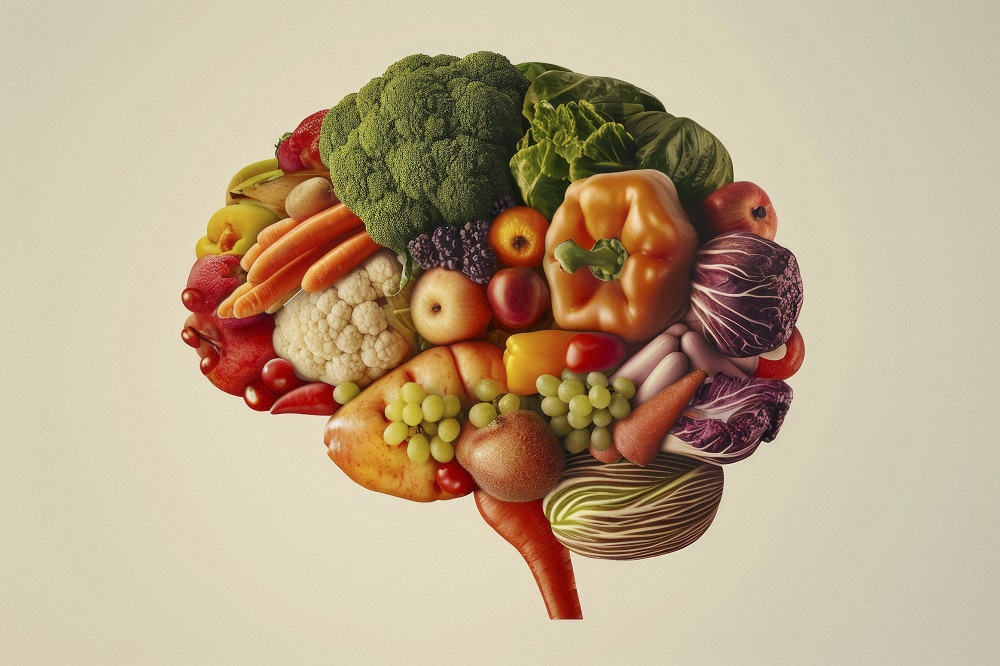The nervous system is one of the most complex and sensitive systems in the body. Its functioning depends on multiple factors, including nutrition. Although we tend to associate diet primarily with overall health, it also has a direct impact on the brain, neuronal plasticity, cognitive performance, and the body’s ability to recover from neurological injuries or diseases.
Scientific evidence has shown that diet can influence inflammatory, oxidative, and metabolic processes that affect the nervous system. Therefore, making good food choices not only improves overall health but also actively contributes to the management and rehabilitation of neurological conditions .
What is the relationship between nutrition and neurological health?
The connection between what we eat and our brain is close. Nutrients such as fatty acids, B vitamins, antioxidants, and amino acids play a role in important functions such as:
- The transmission of neuronal signals
- The production of neurotransmitters
- Maintaining myelin
- Neuroprotection
- Reduction of inflammatory processes
When the diet is deficient, these processes can be altered, making recovery more difficult or aggravating symptoms in various neurological pathologies.
Neurological conditions where nutrition has a significant influence
1. Stroke
After a stroke, nutrition plays a crucial role in:
- Control risk factors such as hypertension or diabetes
- Facilitate the recovery of functional capacity
- Reduce the risk of recurrence
A diet rich in vegetables, fruits, legumes, whole grains and healthy fats —as in the Mediterranean pattern— is considered especially beneficial.
2. Parkinson’s disease
Nutrition can influence:
- The absorption of the medication (such as levodopa)
- Controlling constipation
- Energy and muscle strength
In addition, diets rich in antioxidants help to reduce oxidative stress, which is present in the progression of the disease.
3. Multiple sclerosis
Inflammation plays a key role in this disease. An anti-inflammatory diet rich in omega-3 fatty acids, antioxidant vitamins, and fiber helps improve the patient’s quality of life and neurological function.
4. Traumatic brain injuries
During neurological rehabilitation , a diet rich in protein, essential fatty acids, and micronutrients promotes neuroplasticity and functional recovery.
Essential nutrients for the brain
Omega 3 (DHA and EPA)
Essential for the structure of neuronal membranes and the reduction of inflammation.
B vitamins
Especially B6, B9 and B12, which are necessary for the synthesis of neurotransmitters and the health of myelin.
Antioxidants (vitamin C, E and phytochemicals)
They reduce oxidative damage and protect neurons from cellular stress.
Essential amino acids
They participate in the creation of neurotransmitters such as serotonin, dopamine, or GABA.
Magnesium and zinc
Related to synaptic function and regulation of the central nervous system.
Nutrition and neuronal plasticity
The ability of neurons to reorganize themselves after injury—neuroplasticity—can be influenced by diet. Consuming adequate nutrients encourages the formation of new neural connections, improves motor learning, and accelerates functional recovery.
Therefore, combining good nutrition with neurological physiotherapy programs based on repetitive movement, sensory stimulation, and specific training offers superior results.
Recommended dietary patterns for neurological health
Among the dietary models with the strongest evidence are:
Mediterranean diet
Rich in fruits, vegetables, fish, nuts, olive oil, and whole grains, it is one of the most studied diets for its cardiovascular and neurological benefits.
MIND Diet
Specifically designed for brain health. A combination of the Mediterranean and DASH diets, focusing on foods that protect cognitive function.
Anti-inflammatory diet
Include fresh foods, rich in fiber, antioxidants and healthy fats to reduce chronic inflammatory processes linked to neurological diseases.
Nutrition and neurological conditions
The relationship between nutrition and neurological health is undeniable. A balanced diet not only contributes to disease prevention but also enhances neuroplasticity and functional recovery. Incorporating a tailored nutritional plan, along with a neurological rehabilitation program , offers more comprehensive and lasting results.







